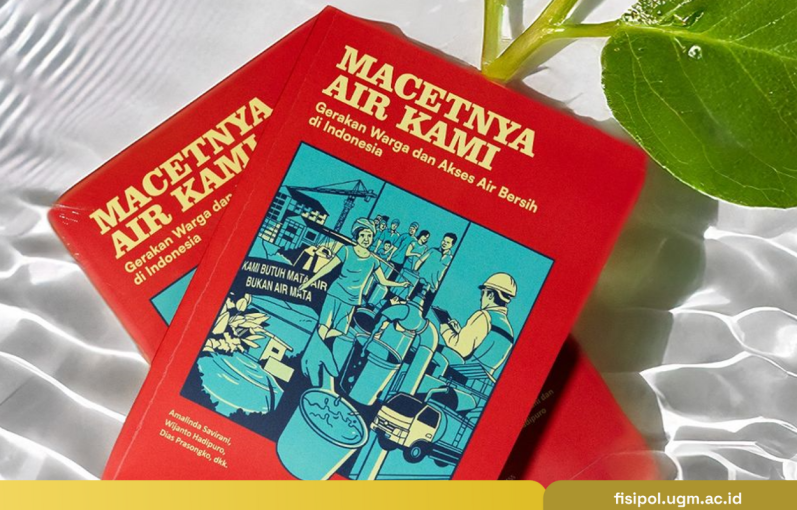
Yogyakarta, July 16th 2024─The island of Java is predicted to experience a severe water shortage in 2030. This worrying prediction is the result of climate change which causes unpredictable weather. On the other hand, the water right is a human right. However, demands for economic growth often prioritize physical infrastructure projects over the availability of clean water. In the name of increasing local economic income, many development projects have deprived residents of their water rights.
Responding to this concern, the Research Center for Politics and Government (POLGOV) FISIPOL UGM, in collaboration with 16 young lecturers and researchers from various campuses in Indonesia, published a new book entitled “Our Water Congestion: Citizens’ Movements and Access to Clean Water in Indonesia”. This book, written by Amalinda Savirani, Amrita Nugraheni Saraswaty, Arga Pribadi Imawan, Luky Sandra Amalia, Wijanto Hadipuro, and other authors, tries to explore the challenges and successes of citizens’ movements in defending their basic rights to water.
This book highlights the successes and failures of citizens’ struggles to defend their basic rights. This book explores the conditions of water scarcity in various regions in Indonesia and photographs the social movements that have emerged in response. Some of these moves work, while others don’t. This book aims to analyze the resilience of citizens in seizing their basic rights and understand the factors that cause success and failure.
The authors attempt to provide a comprehensive examination of the water crisis, emphasizing the importance of water that is accessible to all. They argue that protecting ecosystems and ensuring clean water for communities should be a priority in urban planning and development projects. This book also discusses the role of local governments and community organizations in addressing water scarcity and promoting sustainable water management practices.
One of the main messages of this book is the need for a balanced approach to development that does not sacrifice the availability of clean water. The authors call for policies integrating economic growth with protecting natural resources and citizens’ rights. They highlight successful case studies where communities have successfully mobilized to secure their water rights, offering valuable lessons for other regions facing similar challenges.
The book also discusses the broader implications of water scarcity for public health, economic stability, and social cohesion. This book emphasizes the linkage of water access with other Sustainable Development Goals (SDGs), such as protecting ecosystems and creating sustainable cities.
In conclusion, we hope that the existence of this book can inspire further research and action to address this urgent issue of clean water availability.
The book “Our Water Congestion: Citizens’ Movements and Access to Clean Water in Indonesia” can be purchased via the following link.
